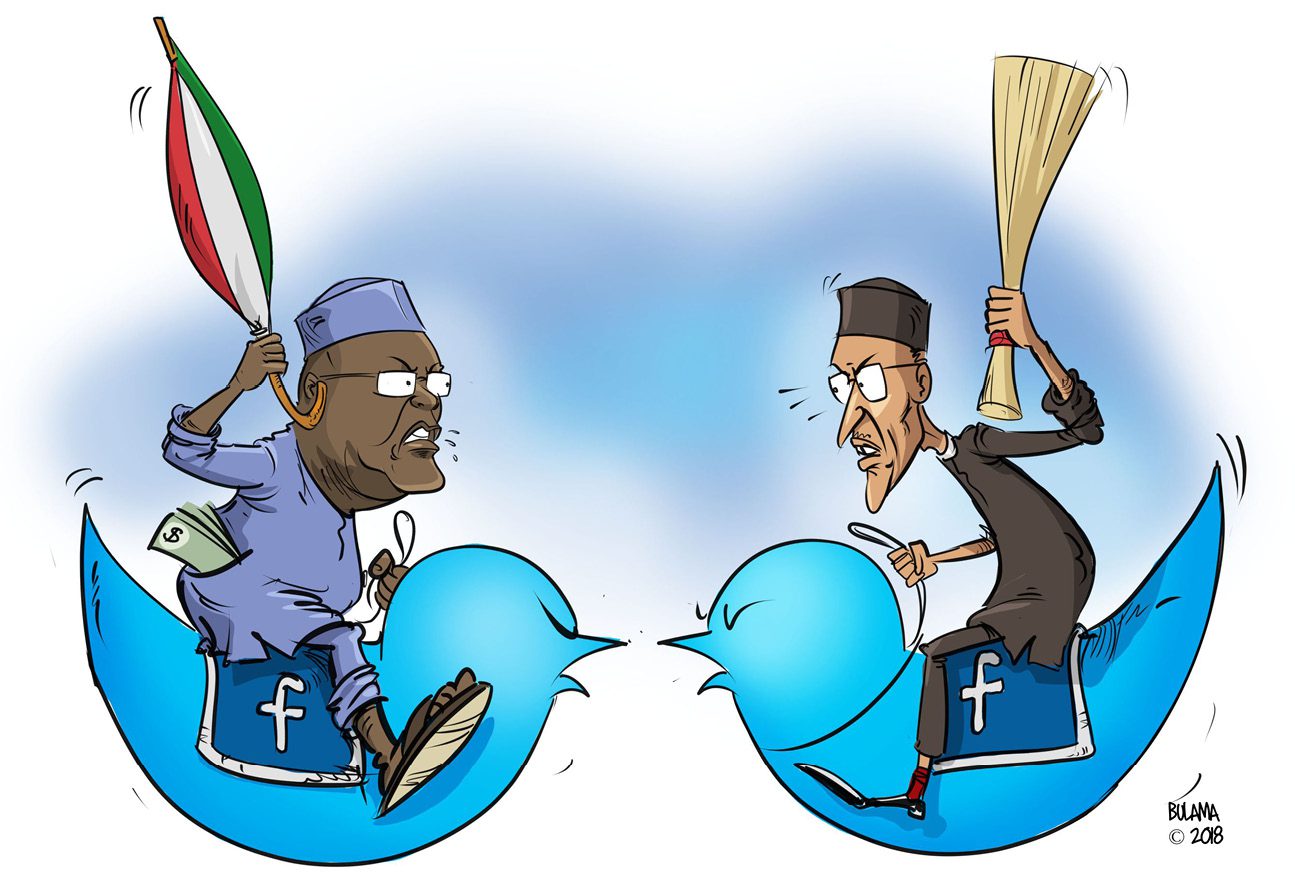The outcome of elections in Nigeria is easy to predict. Around this time next week, Nigerians will be 48 hours from electing state governors and the main political parties should be preparing for legal battles to challenge the results of the presidential election held tomorrow. The credibility of the electoral process has already recorded a major setback with the embarrassing postponement by the Independent National Electoral Commission.
With Nigerians more expectant of a messiah to save them from economic chaos under the current regime, the presidential election is a straight battle between the ruling socialist government of the APC, and the liberal-leaning main opposition, the PDP.
Socialism is among Nigeria’s Biggest Problems
Nigerian leaders have always deceived the public by claiming the country operates a mixed economy while in reality, it greatly leans towards the left (socialism). They love welfarist policies.
They feed on dubious poverty reduction schemes and it has fundamentally become a pathway to siphoning the country’s wealth.
These politicians are smart in their act. They embrace socialist policies that require huge state spending with the disguise of providing free infrastructure and social services rather than liberal reforms that will lift economic responsibilities off their tables.
They often use these schemes to borrow staggering loans from foreign lenders only to spend a low percentage of it on the actual project and keep the majority in their private foreign accounts. Among the damning consequences are stiff government control of individual lives and the means of production, and a large debt.
But the implementation of socialism in the country has shifted in the last four years from dubious loans to mostly unsustainable welfare programs.
Nigeria has become a Full Socialist Experiment under Muhammadu Buhari
Things turned worse in 2015 with the election of the former military dictator, Muhamadu Buhari. His economic manifesto was entirely based on large government spending, protectionism, and welfarism. Karl Marx would have been proud of his horrific economic manuscript.
Buhari charmed voters with a prudent and honest character. For instance, one of the major positive turns for his campaign was the overwhelming appreciation he earned when a picture of him having a cheap breakfast went viral. Of course, anybody would love that.
Also, stories surfaced of how poor he was for his political status. It was so bad he had to plead with the manager of his bank to get a loan for a presidential nomination form.
Nigerians fell for it.
However, he did repay their trust with one welfare scheme after the other. He initiated the appalling Social Intervention Programs that included the provision of 5,000 naira to Nigerians living below the poverty line. The project cost over 250 billion naira without any lasting legacies on the lives of beneficiaries.
It was the same irresponsible grandeur spending with the recent Trader Moni scheme that allocates interest-free loans to petty traders. A scheme directly geared at influencing voters, which Transparency International has tagged a vote buying strategy.
To be fair, Buhari is probably the least corrupt head of state Nigeria has ever had. But a fine personality will not build an economy. Only sound policies will.
Nigeria has tried capitalist reforms before Buhari’s tenure and the positives helped a little. If it wasn’t for the endemic corruption that trailed the regimes of Olusegun Obasanjo and Goodluck Jonathan, their liberal policies would have usher Nigeria’s economic prosperity.
The liberalization of the telecommunications and power sectors under both presidents are among the few positives in the country’s economic history.
Nigeria is Doing Bad under Socialist Reforms
Millions of Nigerians currently find it hard to raise capital to start businesses. Majority of those that defied the odds to start-up have collapsed, and a staggering 8 million jobs were lost in 2017 alone.
Hundreds of large corporations have deserted the country in face of excessive state regulations and the inability of the socialist government of Buhari to make the business environment friendly.
Nigeria also infamously overtook India as the poverty capital of the world, which questions the efficiency of Buhari’s countless welfare schemes.
Welfare in Nigeria has been a scam.
No amount of government spending can eradicate poverty effectively compared to when people have the freedom to own businesses without the government taking away their gains in taxes or constraining them with bad policies.
Can this Election Change Everything?
It is now almost four years since Buhari’s socialist regime plunged the country into economic chaos as a result of his romance with a backward ideology. Things might change if his main opponent, Atiku Abubakar, or any of the other liberal-leaning candidates win the election.
But not all these potential replacements are clean either.
Atiku, for example, is among the country’s most tainted figures: he is still battling a corruption allegation. But his policies do promise some liberalization that will possibly help the economy grow.
Should Nigerians trade liberalism for corruption then? Maybe not. Socialism is bad, and corruption is bad, too.
However, as Nigerians head to the polls on Saturday, their choices are clear: vote for another four years of Buhari’s socialist failure, a tainted liberal-leaning candidate, or a less popular figure among the other 70 presidential candidates.
Ogun Olubokun is a Nigerian social commentator and a graduate student at the University of Benin.

